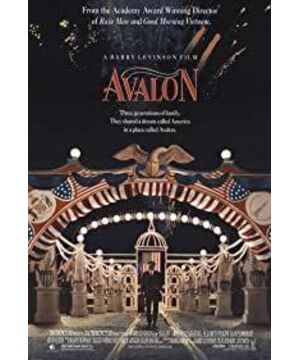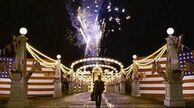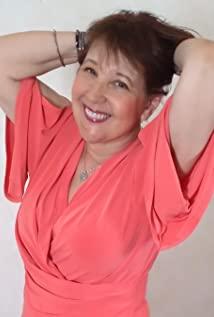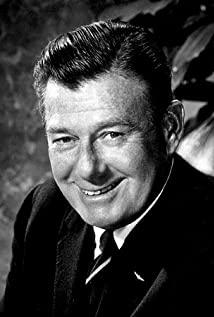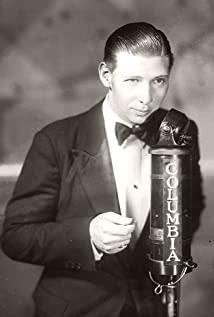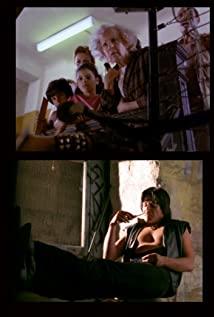The opening scene was set at the harbor area, with the splendid firework in the background sky, young Sam Krichinsky walked slowly toward the camera, completely amazed and in awe, and the voiceover with an accent started: "I came to America in 1914- by way of Philadelphia. That's where I got off the boat. And then I came to Baltimore. It was the most beautiful place you ever seen in your life. There were lights everywhere! What lights they had! It was a celebration of lights! I thought they were for me, Sam, who was in America. Sam was in America! I didn't know what holiday it was, but there were lights. And I walked under them. The sky exploded, people cheered, there were fireworks ! What a welcome it was, what a welcome!" The scene stayed with me after all these years, it was one of the most memorable opening scenes.
The movie is supposed to be a quintessential immigrant story, yet it is much more than that. Like any classic movie or literary work, the story has to be unique and universal at the same time. It chronicles a Russian Jewish family's experience through the 20th century, across three generations, with Baltimore being the backdrop of the story. The old Sam came to the States with his brothers and started in wallpaper business, whereas his son Jules went into commerce selling the first TVs, and opening one of the first department stores. It has so much universality that any family can identify with, like the constant arguing at the dinner table, the tension between the mother and daughter-in-law, the love between the grandfather and his grandson, the mischievous childhood, the struggle through ups and downs of life.
The movie is rather upbeat in the first half, with lots of light-hearted humor, like "what's difference between "Can" and "May"?", "what's the difference between 1914 and 1916", "who said the names should be easy to say? What are you, candy bars?". And gradually it turned rather solemn toward the end. It is also a nostalgic story of how a big extended family slowly grew apart, dissembled, and in the end became the standard nuclear family of our modern time. Sam used to shake his head when some of his relatives did not attend his wife's funeral, and uttered constantly"this is not a family", and at the end of the movie, he was living alone in the assistant living quarters. For someone like him, that must have been unbearable.When I was watching the scenes in which the whole family get together for thanksgiving dinner, the room filled with relatives, grandpa telling stories to the kids, they brought back fond memories of my own childhood, when our extended family got together for every spring festival , with more than twenty people huddled in a crowded house, delicious meals prepared and dumplings ready by midnight of the Lunar New Year's Eve, and the hour long fire cracker extravaganza on the street. Of course with my grandparents passed away, people drifted apart, and we become nuclear families as well. I have mixed feelings about this. I treasure the independence of now, yet I miss the warm and fuzzy feeling of the remote past.they brought back fond memories of my own childhood, when our extended family got together for every spring festival, with more than twenty people huddled in a crowded house, delicious meals prepared and dumplings ready by midnight of the Lunar New Year's Eve, and the hour long fire cracker extravaganza on the street. Of course with my grandparents passed away, people drifted apart, and we become nuclear families as well. I have mixed feelings about this. I treasure the independence of now, yet I miss the warm and fuzzy feeling of the remote past.they brought back fond memories of my own childhood, when our extended family got together for every spring festival, with more than twenty people huddled in a crowded house, delicious meals prepared and dumplings ready by midnight of the Lunar New Year's Eve, and the hour long fire cracker extravaganza on the street. Of course with my grandparents passed away, people drifted apart, and we become nuclear families as well. I have mixed feelings about this. I treasure the independence of now, yet I miss the warm and fuzzy feeling of the remote past.Of course with my grandparents passed away, people drifted apart, and we become nuclear families as well. I have mixed feelings about this. I treasure the independence of now, yet I miss the warm and fuzzy feeling of the remote past.Of course with my grandparents passed away, people drifted apart, and we become nuclear families as well. I have mixed feelings about this. I treasure the independence of now, yet I miss the warm and fuzzy feeling of the remote past.
Melancholy is the best word to describe the movie, yet it is not the heavy and suffocating type. It is very thoughtfully made, with a perfect grasp of the details and nuances of everyday life. Baltimore shone in the background, with the row-houses in beautiful display.
Avalon is the name of the place the family lived in the movie, and I looked it up on Wikipedia. It is a word of Welsh origin, derived from Old Welsh abal, "apple", or aball, "apple tree". It is also a legendary island featured in the Arthurian legend. It first appears in Geoffrey of Monmouth's 1136 pseudohistorical account Historia Regum Britanniae ("The History of the Kings of Britain") as the place where King Arthur's sword Excalibur was forged and later where Arthur was taken to recover from his wounds after the Battle of Camlann. Avalon was associated with mystical practices and people such as Morgan le Fay, the enchantress as the chief of nine sisters who live on Avalon.The island of apples which men call “The Fortunate Isle” (Insula Pomorum quae Fortunata uocatur) gets its name from the fact that it produces all things of itself; the fields there have no need of the ploughs of the farmers and all cultivation is lacking except what nature provides. Of its own accord it produces grain and grapes, and apple trees grow in its woods from the close-clipped grass. The ground of its own accord produces everything instead of merely grass, and people live there a hundred years or more. There nine sisters rule by a pleasing set of laws those who come to them from our country.and apple trees grow in its woods from the close-clipped grass. The ground of its own accord produces everything instead of merely grass, and people live there a hundred years or more. There nine sisters rule by a pleasing set of laws those who come to them from our country.and apple trees grow in its woods from the close-clipped grass. The ground of its own accord produces everything instead of merely grass, and people live there a hundred years or more. There nine sisters rule by a pleasing set of laws those who come to them from our country.
So it is really an appropriate name for the movie, because to Sam and his family, America is their Avalon. But of course, as in any fairy tale, no one talks about life of the happily-ever-after, and as we can see, life on Avalon is probably like life anywhere else, filled with laughs and quarrels, happiness and sorrow, triumph and defeat, and all we need to do, really, is to just carry on.
View more about Avalon reviews


